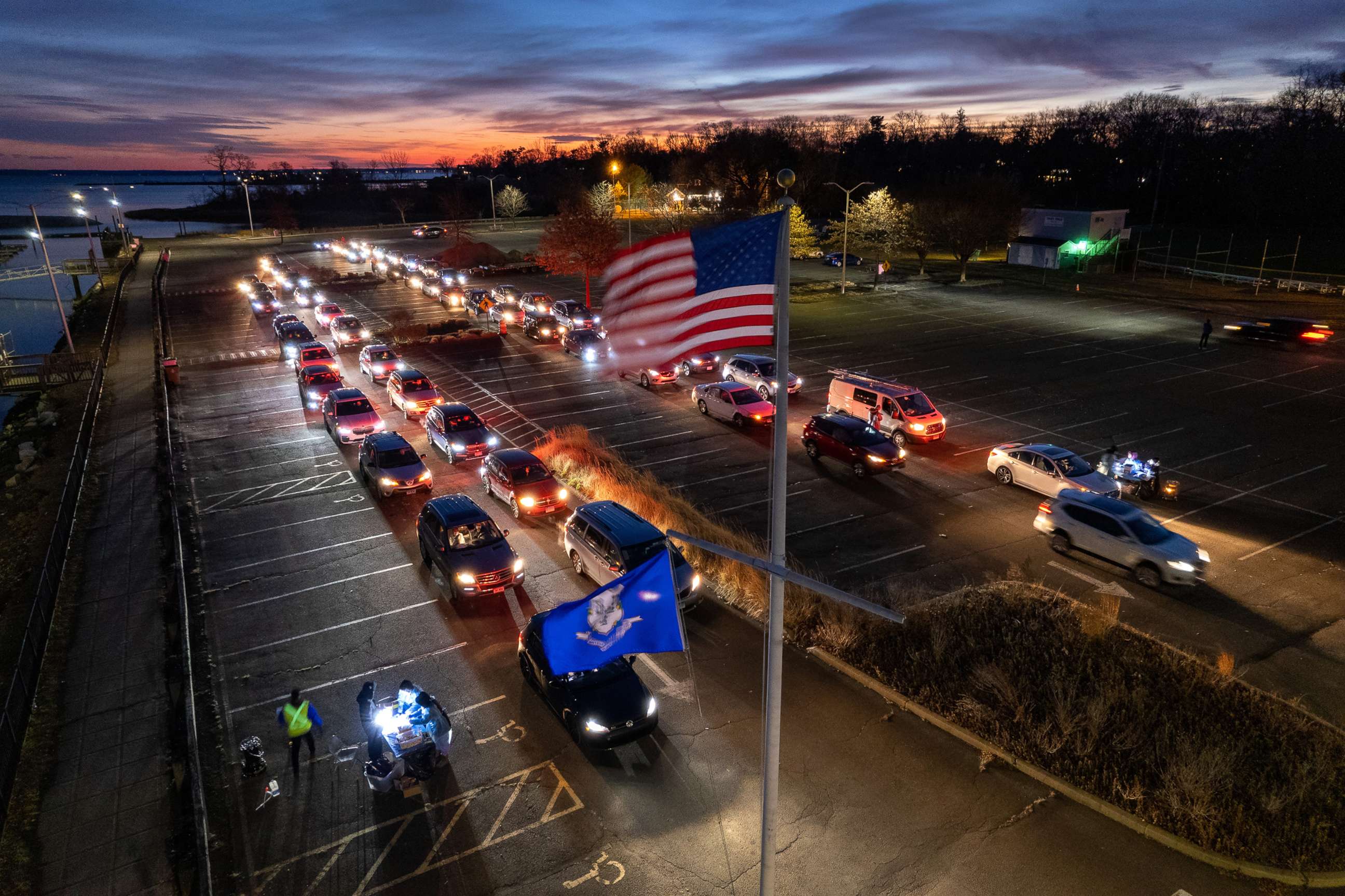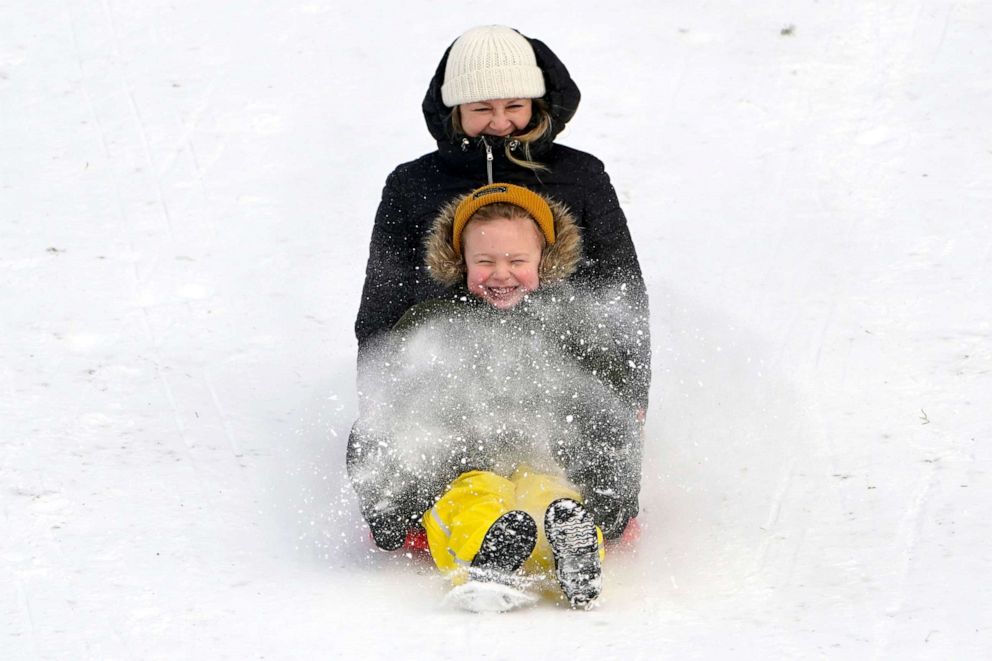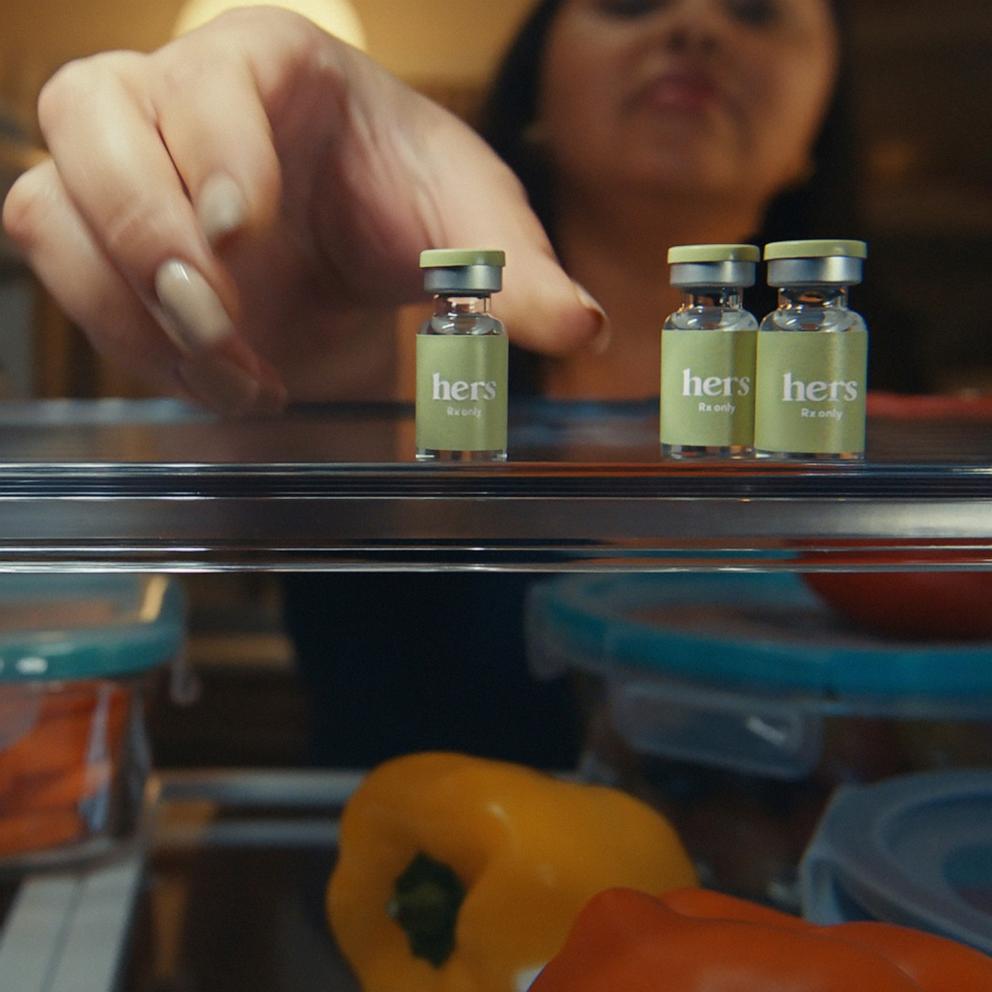5 ways to deal with anxiety during the holidays amid the omicron surge
With the explosion of coronavirus cases in the U.S., fueled in part by the highly contagious omicron variant, Americans are once again facing a wave of sickness and the anxiety and stress that comes with it.
Those who believed that mass vaccination would help bat the virus down over the summer were hit with a wave from the delta variant and then record number of cases once again in December with omicron.
"People feel languishing and pandemic fatigue," said Elissa Epel, a psychiatry professor at the University of California, San Francisco. "People are tired."

This fatigue comes less than three months from the two-year mark of the pandemic.
"It is a very complex time for many of us," Epel said. "Our situation has changed, it has not ended. We live in a new world."
While the U.S. is arguably in better shape with an arsenal of safe and effective vaccines and treatments, including some that are in development, the pandemic still looms large with wave after wave of cases and no end in sight.
In this new world where vaccination status and mask mandates appear to be the new normal, people still feel anxious about the uncertainty of what's next for the new year, experts say.
Mental health experts emphasize the importance of focusing on emotional well-being during these times.
Here are some exercises and coping mechanisms some experts recommend practicing to overcome the overwhelming anxiety during this new surge amid the new year.
Connect with loved ones
Despite having to follow quarantine or isolation requirements it's important to connect with family and friends during these difficult times. Large gatherings are not recommended, but if your small and closest circle is fully vaccinated, including the booster shot, an intimate gathering following safety guidelines could be beneficial for people's emotional well-being, mental health experts say. If it's not possible to see family members or friends, psychologists are recommending taking advantage of technology. "Calling and texting people, especially those who may be alone, can be one of the most important acts this holiday," Epel, a stress expert, told ABC News.
Nurture your body
Staying active has been one of the top recommendations from therapists during this pandemic, but sometimes finding the motivation to exercise is the difficult part. According to trauma and stress researcher Alison Holman at the University of California, Irvine, the key is finding ways to heal and nurture your body to let the energy flow. "When the energy stays pent up inside, it actually can really get the mind going," Holman said. "Get some kind of exercise, whether it's a creative form of exercise." Some untraditional ways of getting some exercise or keeping your mind busy are: dancing, hiking, walking outdoors, jumping rope, drawing, meditating, among many others.

Limit social media time
With everything that's happening, it's very easy to find yourself scrolling down through your feeds for hours to stay in touch with what is happening in the world. "One of the best things you can do to protect yourself from stress is to turn off the TV and turn off social media," said Holman. "Get maybe 15 minutes, maybe 30 minutes to scan and see the things that you need to see for the day, then turn it off," she added.
Labeling your feelings
Mental health experts say that identifying and naming your feelings could be beneficial in validating and understanding the mixed emotions many people are experiencing nowadays. "Naming specific emotions can help you gain insight to understand why you feel overwhelmed… even if the predominant feelings are sadness or anxiety," Epel said. "It can help you feel more equanimity and balance," she added. Once the feeling has been named or labeled there are ways to work with it like meditating or breathing exercises that can help people go through the specific feeling.
Control what you can
"Focus on the things you have some control over," Epel says. As the world is going through uncertain times experts say that making peace with uncertainty and understanding that people don't have full control of everything will be key in going through these rough moments. Epel told ABC News that listing meaningful things that can be done at the moment and paying attention to the little positive things in life. "Focus on R&R -- restoration and repair -- nature, animals, people. Research shows that a path to happiness and well-being is helping others."




